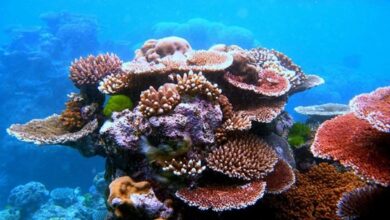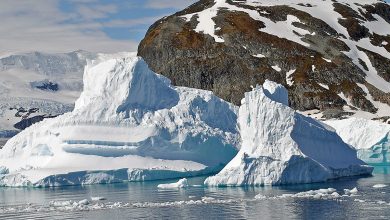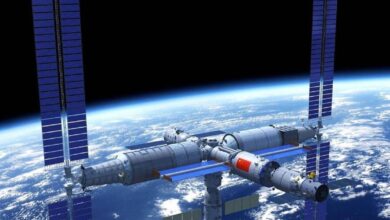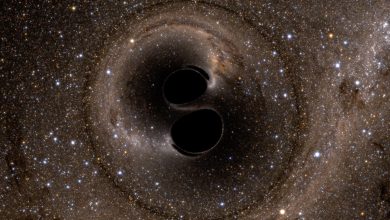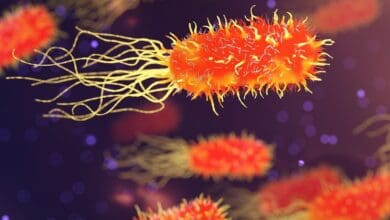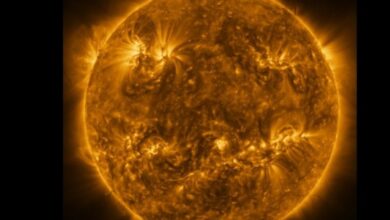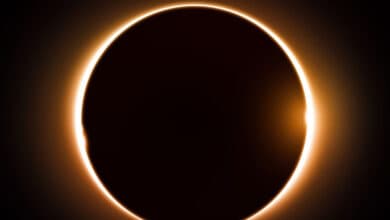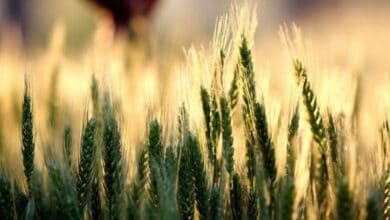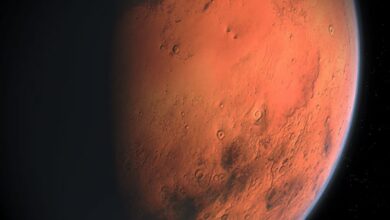Science
-
How a common sunscreen ingredient damages coral reefs
London: Researchers have identified a mechanism by which oxybenzone – a common sunscreen component – may be hastening the demise of reefs. The study, led by Stanford University, could help guide the development…
-
Giant groundwater system discovered below Antarctic ice
New York: A team of scientists has mapped a huge, actively circulating groundwater system in deep sediments in West Antarctica. The team at Columbia University estimated that if all of it were…
-
Researchers observe increasing decline in bird population globally
New York: As per a study by Cornell University, an increasing decline in the population of birds is taking place across the globe. This study from multiple institutions was published today in…
-
How extended space flights affect astronauts’ brains
New York: Long-duration space flight can alter fluid-filled spaces along veins and arteries in the brain, according to new research. Researchers from Oregon Health & Science University (OHSU) imaged the brains of…
-
Scientists reveal eight new sources of black hole echoes
Cambridge: Astronomers have discovered eight new black hole binaries that echo around our galaxy, allowing them to piece together a common picture of how a black hole moves in an explosion, according…
-
Scientists map living corals before and after marine heat wave
New York: A team of scientists have, for the first time ever, mapped living corals before and after a major marine heat wave, to make targeted and effective conservation. While there have…
-
Scientists find new plastic-loving bacteria able to cross oceans
London: UK scientists have found new types of plastic-loving bacteria that stick to plastic in the deep sea that may enable them to “hitchhike” across the ocean. The team from Newcastle University…
-
NASA scientists crack 60-yr-old mystery of explosions on Sun
Washington: Scientists at NASA have developed a theory that explains how explosions occur on the Sun, and help better predict geomagnetic storms and solar flares that can impact Earth. An explosive process…
-
Potentially hazardous giant asteroid to zoom past Earth on Thursday: NASA
Washington: A potentially hazardous giant asteroid is set to zoom past Earth with a 37,400 km/h speed on Thursday, according to NASA. The asteroid, named 418135 (2008 AG33), has an estimated diameter…
-
Stripe and brown rust resistant wheat variety developed
New Delhi: A wheat variety, with excellent baking quality that yields soft and sweet chapati at the same time, and free from stripe and brown rust, has been developed by Indian researchers,…
-
Study shows Mars had less water than previously thought
New York: Mars, which was once known to contain a massive body of water, may have less water, suggests new research. According to researchers at the University of Texas at Austin, the…
-
Rise in satellites threatening orbital space around Earth: Scientists
New Delhi: The rapid growth of the anthropogenic space object population, including satellite mega-constellations’ that are placed in low Earth orbit to deliver broadband internet and other services, are increasingly threatening the…
-
Scientists find climate change can actually accelerate ocean currents
San Diego: An international team led by researchers from the Scripps Institute of Oceanography at the University of California used computer modelling simulations to discover that climate change is altering the mechanics…
-
World’s longest known COVID-19 infection lasted for 505 days in UK patient
London: An immunocompromised UK patient suffered the longest known days, 505, with Covid infections, claim researchers. Previously the longest known PCR confirmed case is thought to be 335 days. Researchers at the…

